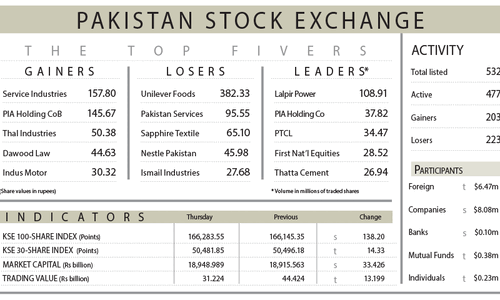Construction and real estate are related but two distinct terms. Nonetheless, both are interconnected components of the broader construction and property industry in any country’s economic development.
However, in Pakistan, people largely misconstrued this dissimilarity, and even policymakers often don’t differentiate between the two while devising economic plans and budget policies.
The construction sector includes diverse services and manufacturing of various building materials, both in large-scale manufacturing (LSM) and small and medium enterprises (SME), that run more than 70 other allied industries altogether.
But the general understanding of the construction sector in Pakistan is that of housing and real estate, that too mainly in the private sector.
Because of this misconception, the construction industry has been largely exploited in Pakistan. Various governments gave amnesties and tax relaxations to the construction sector.
But rather than mobilising construction activities, this measure remained largely limited to the private housing market, resulting ultimately in a sizable increase in plots and files’ prices owing to the speculative nature of the property market.
The government needs to balance economic activities of construction with speculative real estate trading
For example, in the 2019-20 budget, the PTI-led government withdrew the three per cent tax imposed on not explaining the source of investment and waived capital gain tax on the sale of immovable properties for over five years. The rate of withholding tax on the purchase of immovable property was also lessened from 2pc to 1pc.
Moreover, their budget allowed non-filers to buy immovable properties of any value and then sell out without paying any withholding tax after five years. All these relaxations were directly related to real estate investments and trading.
But on the other hand, in the same budget, the government raised the excise duty on cement from 1.5pc to 2pc per kilogram and imposed a 17pc tax on the sale of steel and marble industry. That budget adversely affected the construction industry, which resulted in an uncontrolled hike in building material prices.
This is the reason many believe the PTI’s undue real estate policies increased only the prices of plots and properties without having construction activities on land.
In contrast, the present PDM-led government has taken real estate differently, which is reflected in their two budgets.
The key announcement in the PDM-led government’s first budget was the reversal of tax and subsidy-related incentives that had been announced for the construction and real estate sector in the PTI-led government’s last budget.
According to budget reforms for 2022-23, owners of more than one immovable property with a value above Rs25 million were required to pay a tax equivalent to 1pc of the fair market value of their possessions. The advance tax rate for filers on real estate transactions was raised from 1pc to 2pc, while for non-filers, it went up to 5pc. The government also suspended the Mera Pakistan Mera Ghar Scheme, launched by the previous government.
According to Pakistan Economic Survey announced before the recently-announced budget 2023-24, the industrial sector, particularly manufacturing and construction, took the brunt as it contracted 2.94pc.
Much of the shrinkage was due to an 8pc decline in large-scale manufacturing, where cement and steel are pivotal industries. But in the services sector, real estate activities grew by 3.72pc, largely because of a sizable increase in land prices owing to stagnancy, hoardings and speculations in the property market.
It is a fact investors generally prefer to invest in trading open plots and finished buildings to easily earn profit as well as hide their undeclared income through real estate. But that doesn’t increase the flow of income through the economy and hinders economic growth.
Furthermore, private builders have opted for luxury apartment towers and gated or walled housing societies rather than incremental housing schemes to reduce the deficit of housing across the country.
The budget 2023-24 aims to push on construction activities rather than just trading in real estate as the tax on income from the construction sector has been halved from 30pc to 20pc for the next two years. Besides, there is a 10pc reduction in tax liability or Rs5 million for a builder and a 10pc reduction or Rs1 million for an individual to construct their own house for three years. There is also a special incentive for overseas Pakistanis with a 2pc final withholding tax waiver on the purchase of immovable property in Pakistan if it is acquired through foreign remittances remitted from abroad.
Unlike real estate, construction is a regulated sector of Pakistan’s economy, involving various trades and disciplines such as architecture, engineering, project management, and a skilled workforce. Besides, various industries, including cement, steel, electrical and appliances, ceramics, glass, etc, are supported by construction works.
The government has to work on these aspects to balance its policies and spin the wheel of the construction industry of Pakistan.
The writer is the founder and editor of Infocus.pk — a website on the environment and sustainable construction. Twitter: @mwasim37
Published in Dawn, The Business and Finance Weekly, July 10th, 2023


































